
Leaders of the next generation
Home
Stories
Leaders of the next generation
What will the world look like for the next generation?
Young leaders from Aotearoa and around the globe are on the frontlines of change advocating for the future they want to see for the young people of today and the next generation.
They are calling for a world that protects the environment and defends the oceans, champions the revitalisation of indigenous languages and solutions to climate change, inclusive and quality education for all children, girls' rights, mental health education, and the empowerment of LGBTQI+ youth.
At UNICEF we’ve been privileged to meet and work alongside some of these young leaders helping to get their voices heard.
Sonny Ngatai
Māori language champion
Aotearoa—Ngāi Tahu, Ngāti Rangiwewehi, Ngāi Te Rangi, Ngāti Whātua o Kaipara
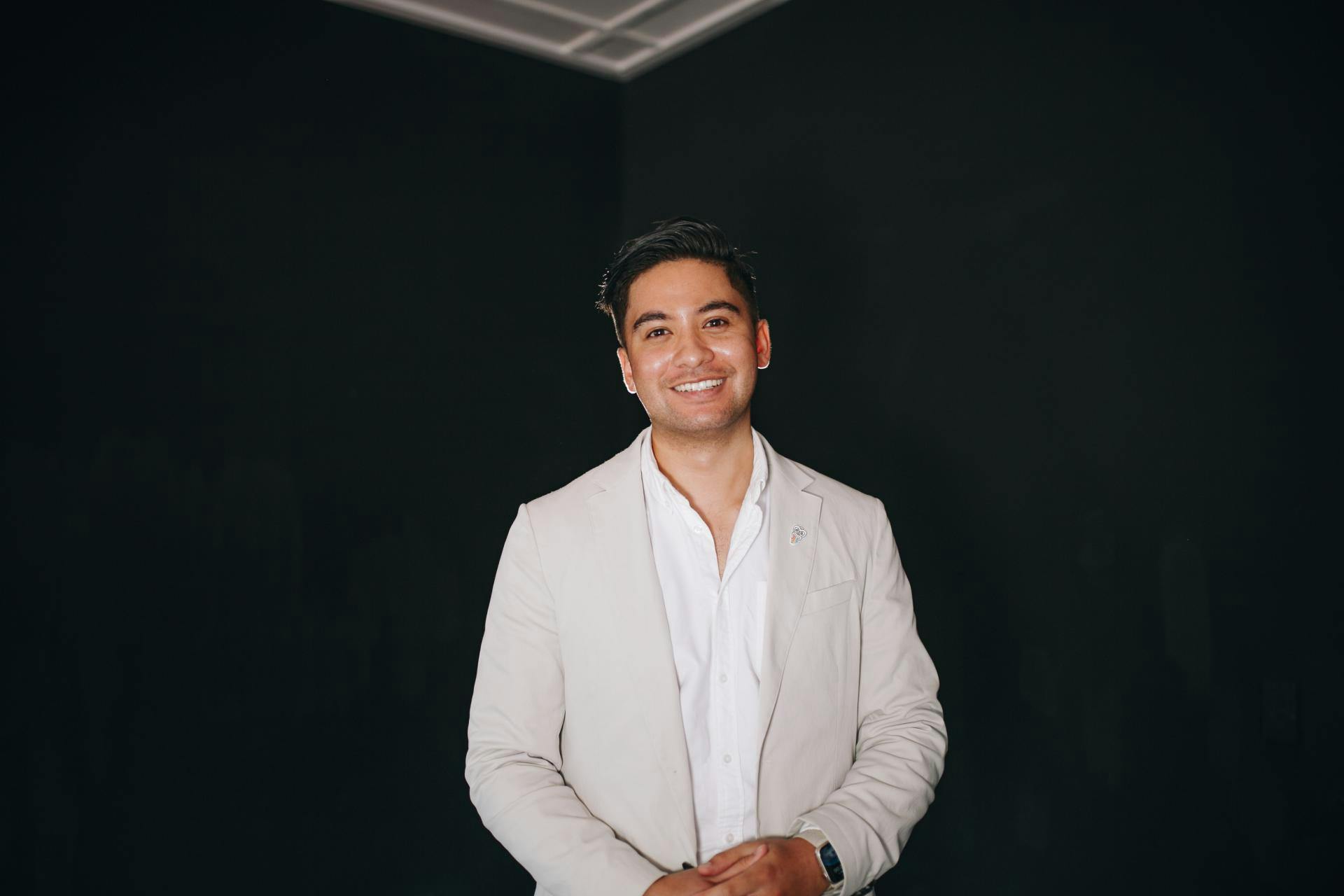
“Te reo Māori is definitely a superpower of mine. Because it's been unlocked and unleashed within me, I have been able to live the best possible version of the person I’m supposed to be.”
Sonny Ngatai champions the revitalisation and promotion of te reo Māori in Aotearoa and the world.
As a past UNICEF Aotearoa Young Ambassador Sonny hosted events alongside other ambassadors which encouraged youth to participate in civic issues. The UNICEF NZ Youth Congress provided tools to young people of Aotearoa on how to become future leaders and create positive change in their world.
Since then, Sonny has continued to drive his love for te reo Māori and works to ensure the language is accessible to everyone. He has presented and produced broadcast content in te reo Māori, and has become involved in national kaupapa that celebrates the importance of the language and mātauranga Māori.
"I’m a huge supporter of Māori language week. I think it reminds us of the battle that many of us had to face to ensure the language could be protected and made official.”
“Another kaupapa I’m passionate about is Matariki. It’s a great milestone for our country to show the biculturalism that our nation is built on and is a time to help rangatahi with rejuvenating, re-energising, and protecting their wellbeing.”
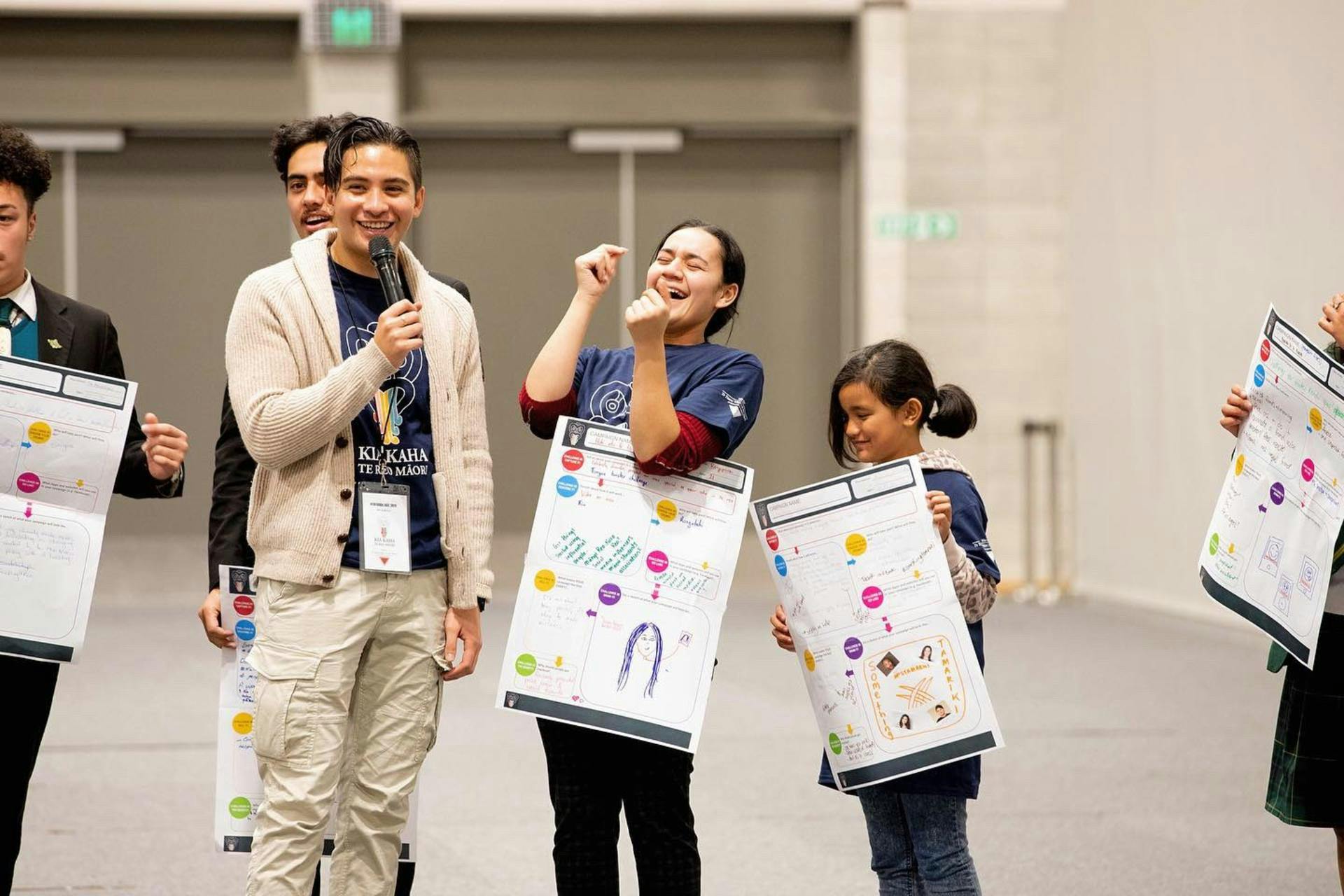
Today, Sonny continues to drive his passion through his work in digital production and creation.
“I’m passionate about tamariki in Aotearoa growing up and speaking and hearing te reo Māori. That’s why all the mahi I do in content creation and broadcasting is very much focused on shifting Aotearoa to become more receptive on the language.”
Tainara Cruz
Kambeba leader and climate activist
Kambeba People—Brazil
“If we don’t fight for climate justice, we will be more and more affected by it.”
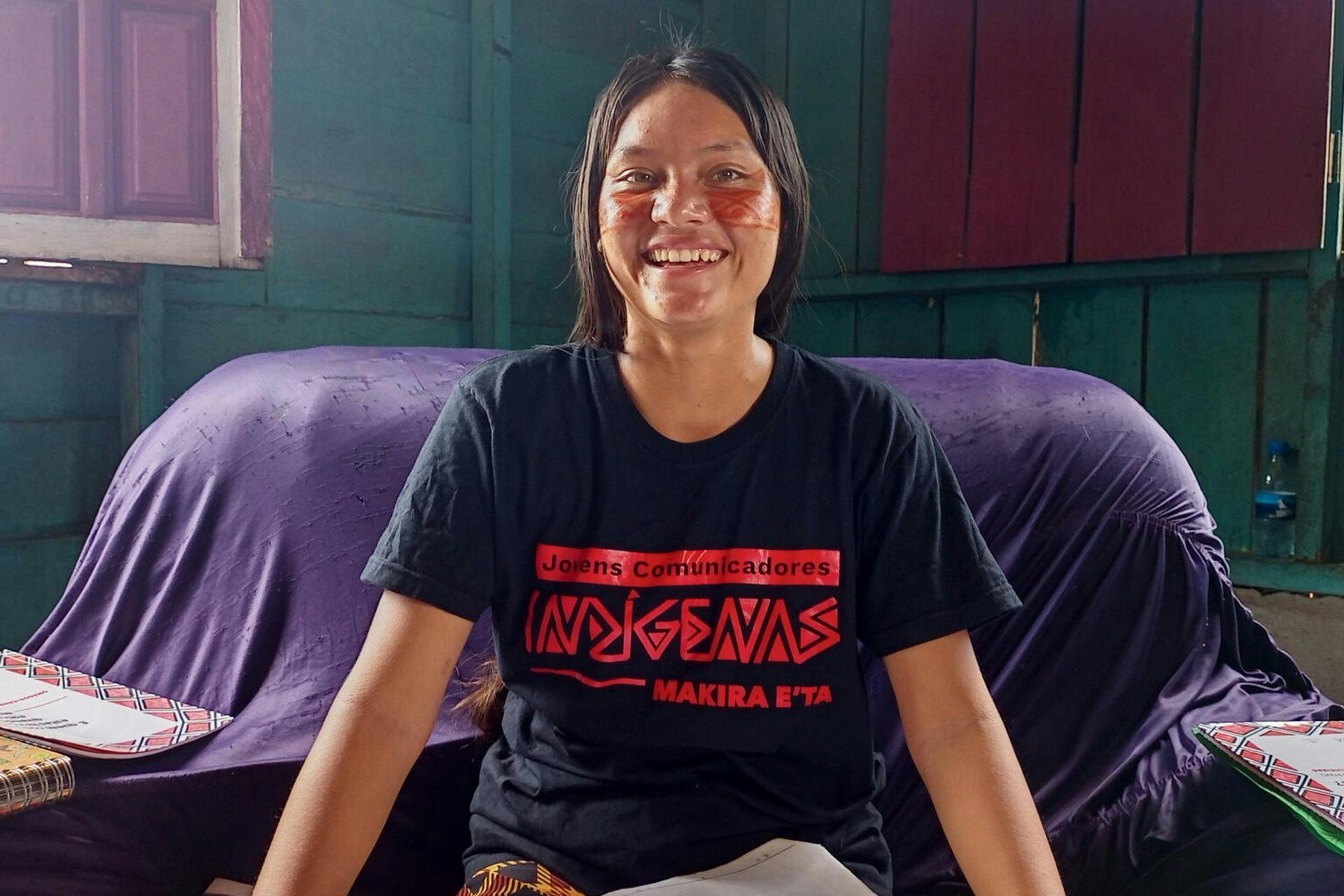
UNICEF/UN0732593/Cavalcante
Tainara Cruz embraces the struggle of young leaders for the rights of indigenous peoples and advocates for the conservation of the Amazon rainforest. She represents her community—the Kambeba People in Brazil. In 2022, Tainara attended the United Nations Conference of Parties (COP27) in Egypt, supported by UNICEF and Viração Educomunicação.
“COP27 is an opportunity to value our culture and give voice to indigenous peoples on environmental issues. Each year, we realise that the impacts of climate change are significant. We are faced with periods of drought or more intense rain, which end up harming plantations.”
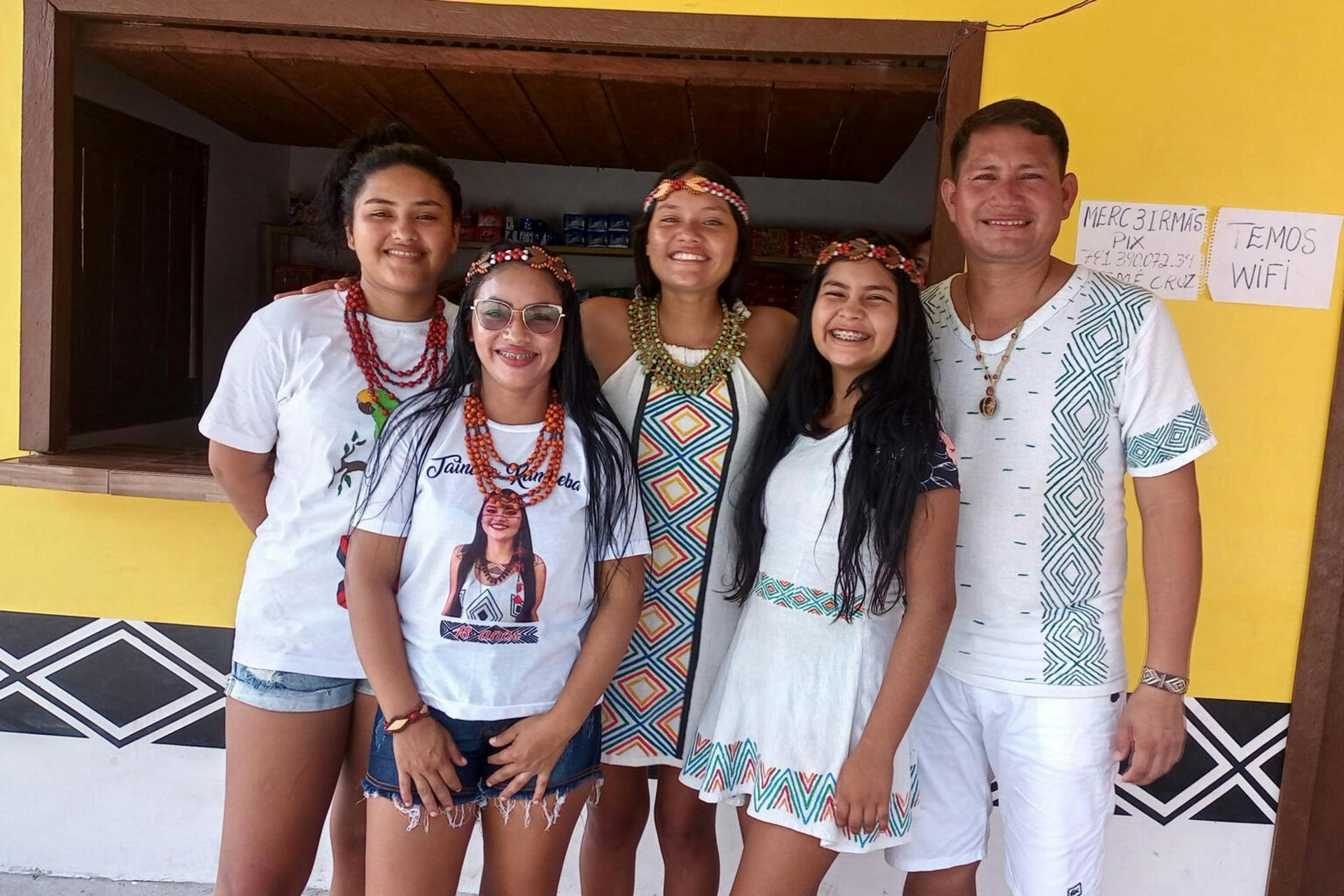
UNICEF/UN0732595/Cavalcante
Tainara’s father, Tome Cruz, is proud of his daughter's leadership. “Tainara observed the discussions about the rights of indigenous peoples and rational management of the forest. We are proud of her participation in COP 27, as this is the result of her dedication and responsibility as a young indigenous leader,” he says.
Zhao Chen
Youth advocate for digital rights
China
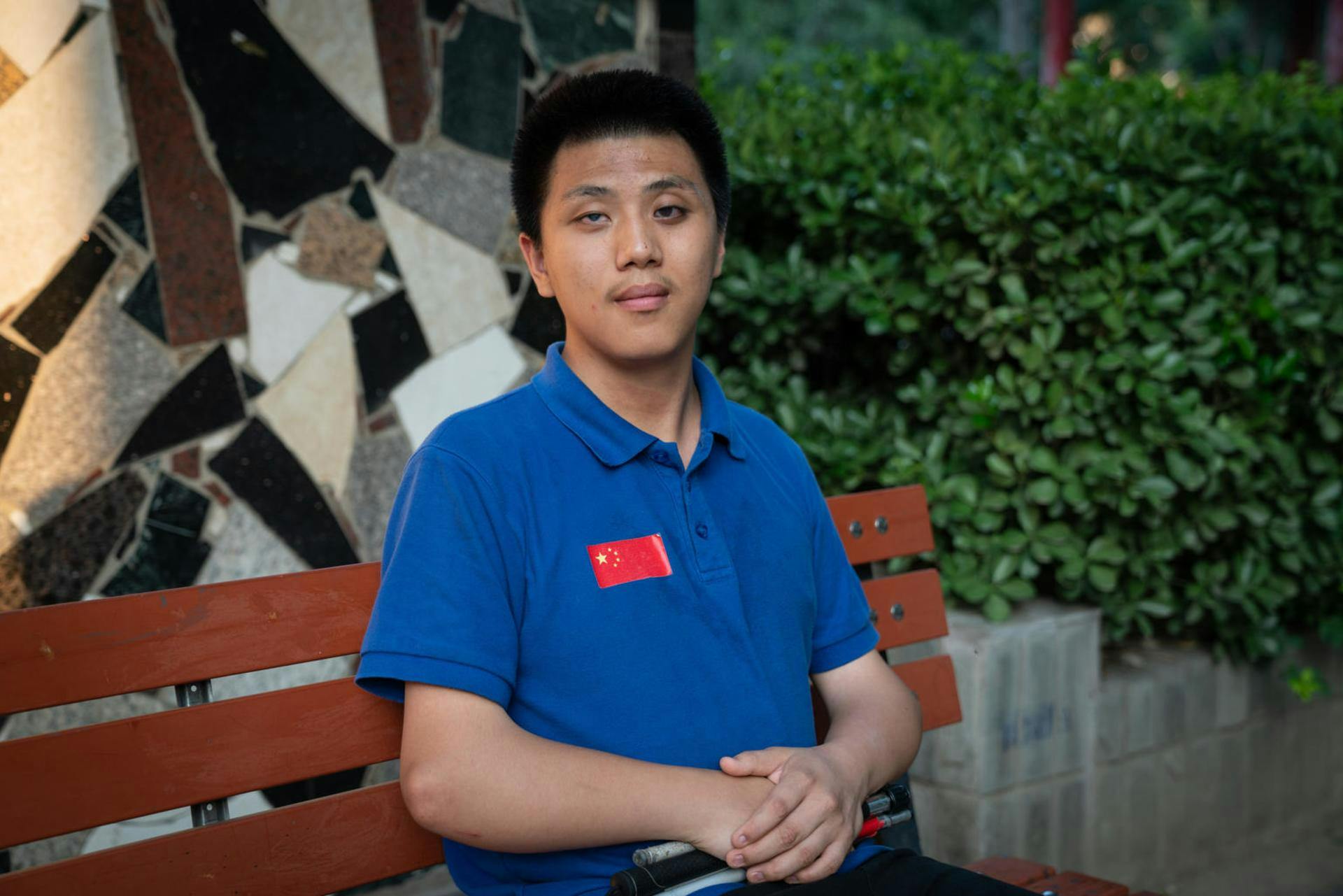
UNICEF/UNI359174/Yan
“Placing digital accessibility on the agenda paves the way for an inclusive society.”
Zhao Chen is a youth advocate in China pushing for digital technology to be made inclusive for young people with disabilities.
He began to lose his eyesight at a very young age from a condition called congenital myopia and faces many daily challenges.
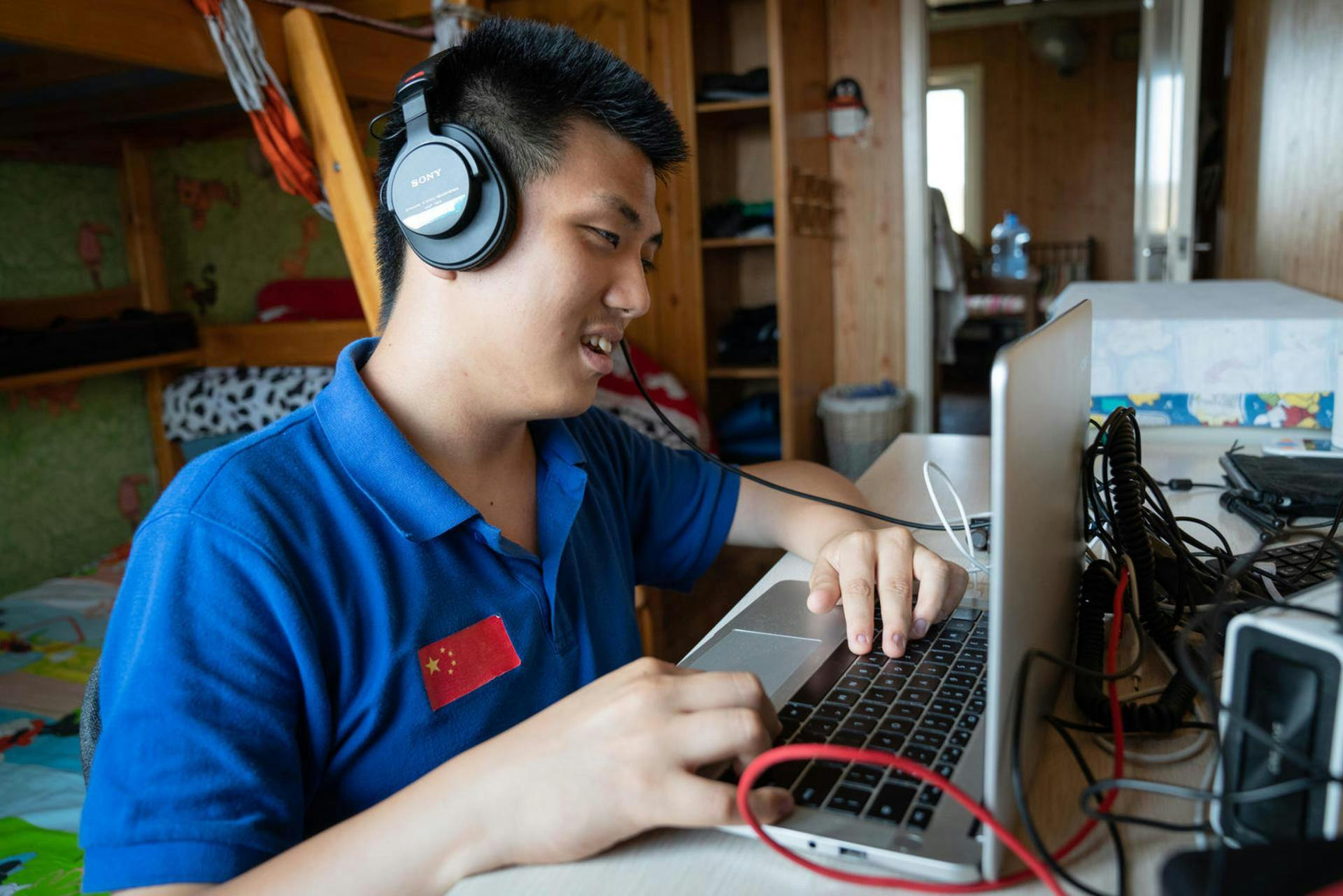
UNICEF/UNI359183/Yan
Zhao relies on a screen reader to turn visual representations on computers and smartphones into audio, but it doesn’t always work. He also struggles to access a ‘green code’ to prove that he is free of Covid. Completing CAPTCHA tests is also a challenge as they use images of text or other visual perception tasks that identify whether a user is a human or a robot. It means Zhao is often unable to access information or complete application forms without assistance from a friend.
At an online youth dialogue jointly hosted by UNICEF China and Tencent called ‘Digital Youth: My Life, My Future’, Zhao presented a proposal for eliminating the barriers to digital technology:
“A good design must respect all differences, be universal, and easy to use. We hope to be respected and have machines serve our needs, instead of being hijacked by machines. Universal design of digital products will benefit more people and make the world a better place,” says Zhao.
Ruairí Holohan
Youth advocate for LGBTQI+ rights, mental health and education
Ireland
"In my reimagined world, there is no discrimination. There would be no need to ‘come out’, because you would just be yourself.”
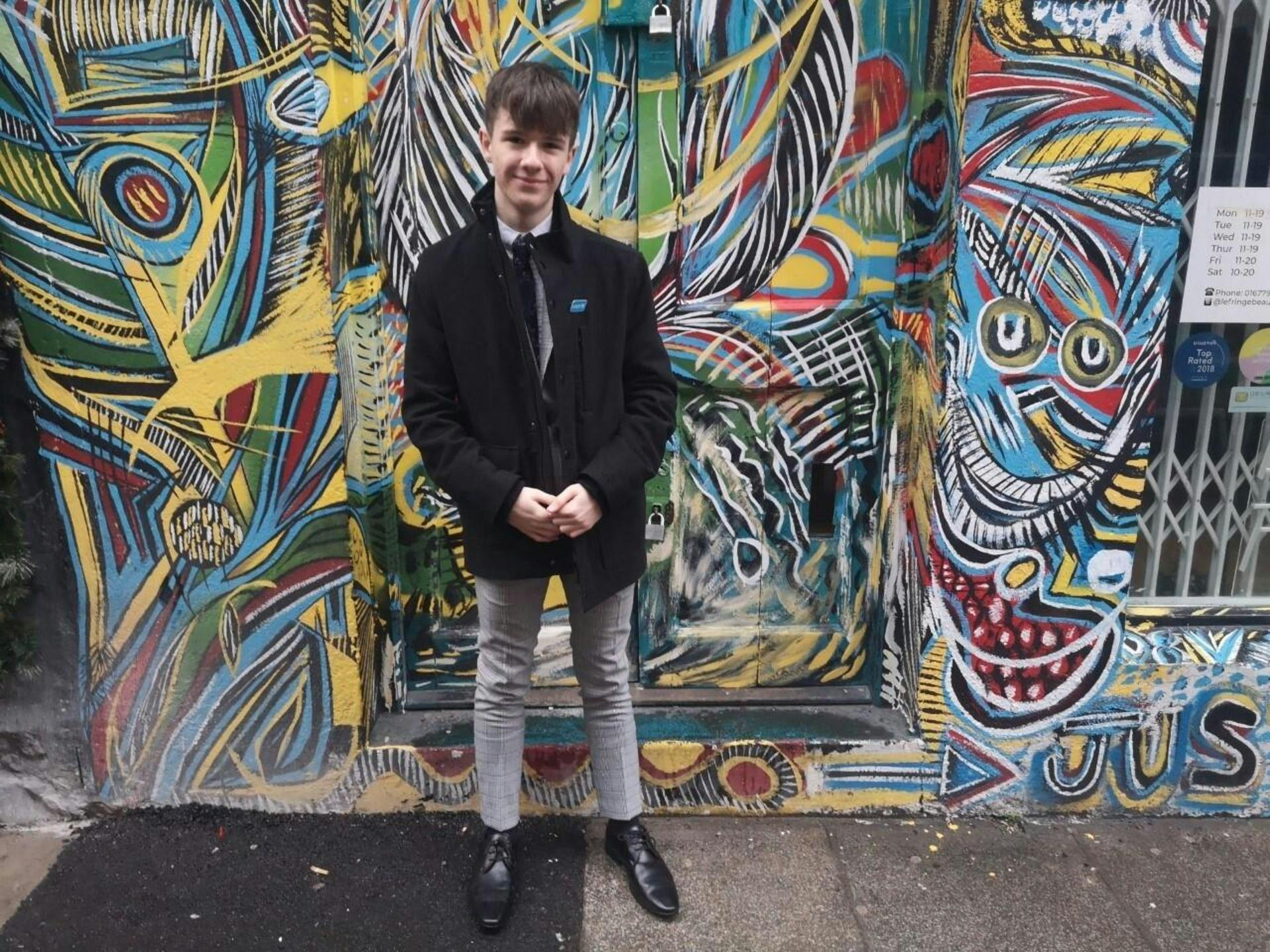
UNICEF/UN0509292
Ruairí Holohan is a global UNICEF Youth Advocate and speaks out on societal issues and how they impact the LGBTQI+ community including education and mental health.
‘Young people in the LGBTQI+ community face threats or abuse of violence every day,’ says Ruairí who has spoken publicly about being bullied in school after coming out as gay when he was 13 years old.
The young ambassador says the education children receive in schools can have a positive impact on preventing discrimination and bullying of LGBTQI+ children.
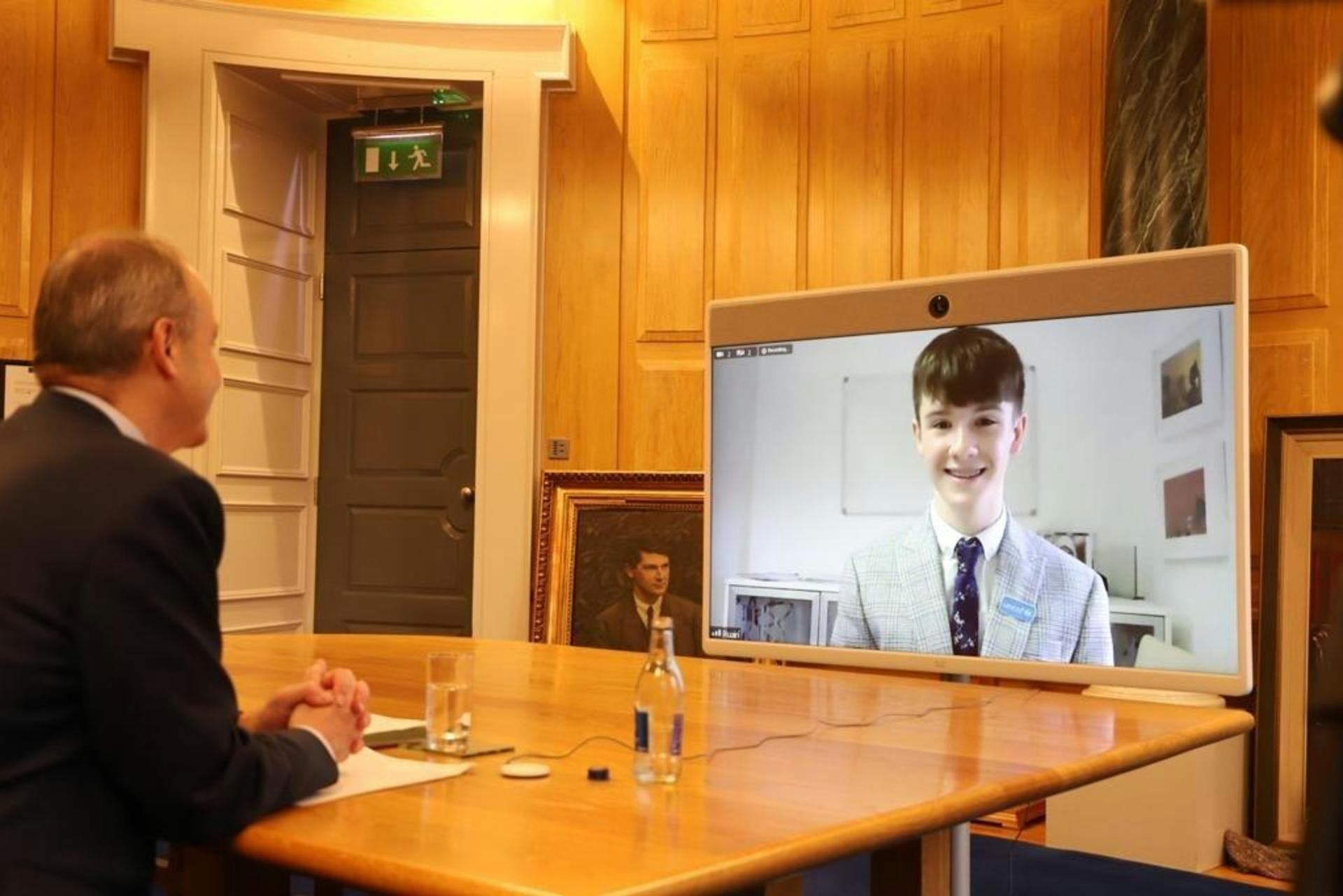
UNICEF/UN0509288
In 2020, Ruairí had a conversation with Ireland’s Prime Minister to raise awareness of the lack of education in Irish schools about LGBTQI+ rights.
Last year in 2022, Ruairí spoke to leaders and advocates from across the world at the 77th session of the UN General Assembly in New York: “When we talk about the future of education, the voices of young people, and their mental health, must be part of the conversation. We need to step back and think about what we want from our years of education. What is an education if it doesn’t provide you with a space to learn about yourself, and your own mental health?”
Adama Diallo
Girls’ rights activist
Senegal
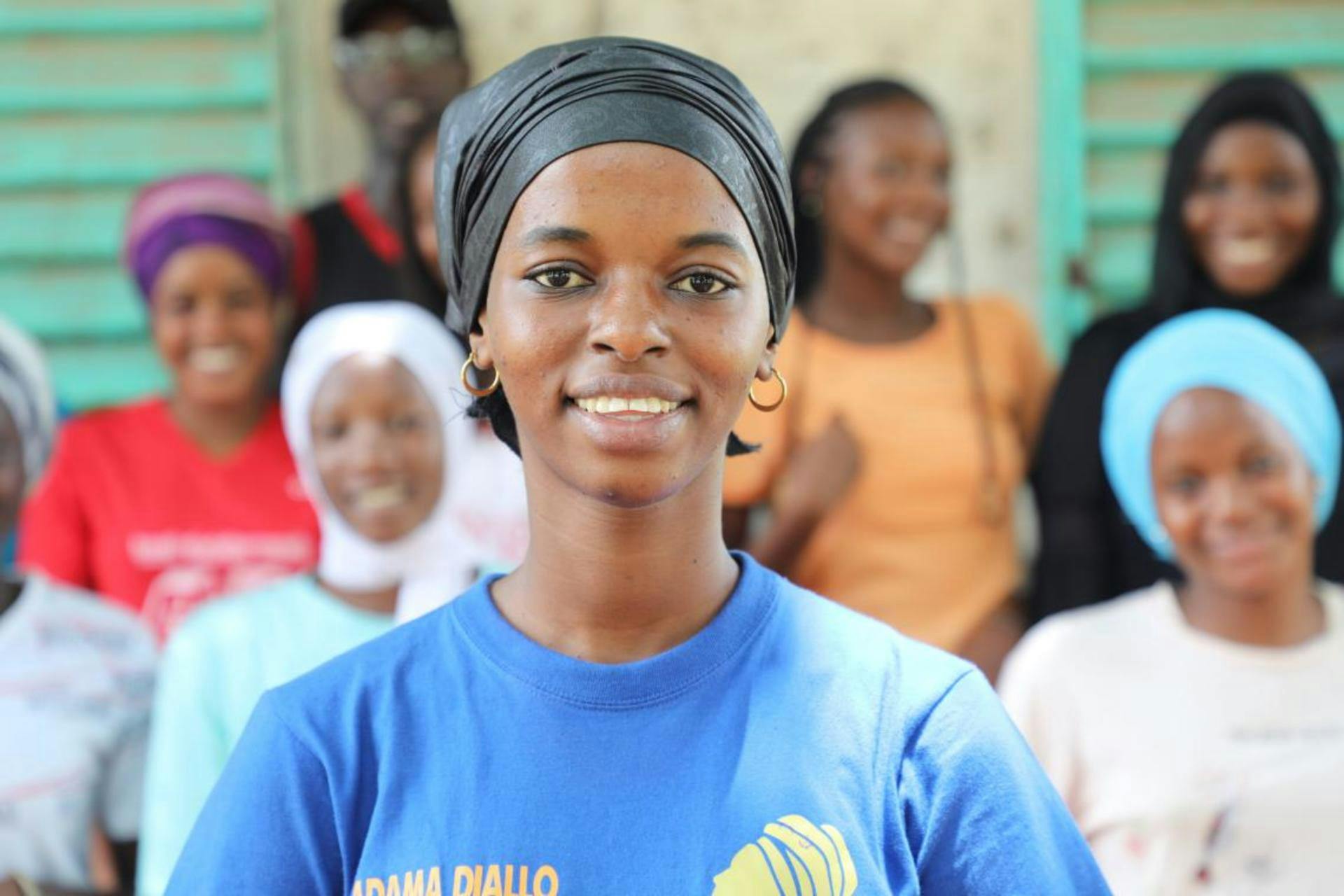
UNICEF/Senegal/2022/Massamba Fall
“Child marriage or female genital mutilation are persistent in our region. It is for this reason that I am personally committed to fighting against these practices."
Adama Diallo is a young educator and advocates against child marriage and female genital mutilation (FGM).
“Girls subjected to FGM are at increased risk of becoming child brides and dropping out of school, threatening their ability to build a better future for themselves and their communities,” says Adama.
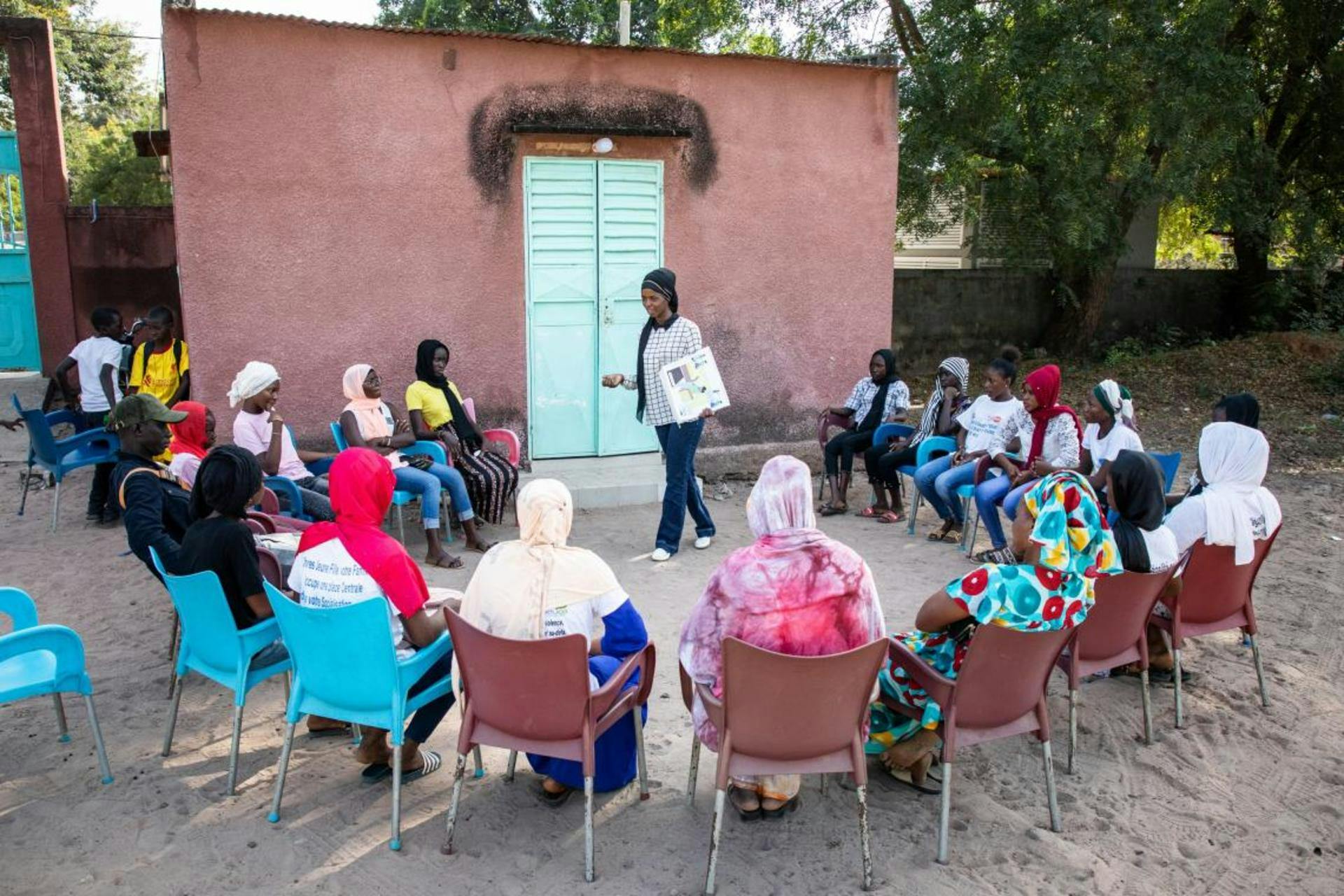
UNICEF Senegal/2022/Vincent Tremeau
Adama is the president of the Dabo girls' club in Senegal and the Support Project coordinator for the National Strategy for Equity and Gender Equality and a member of the global consortium to fight against female genital mutilation (FGM). People from the community contact Adama to report instances of abuse or suggest solutions for change.
"We also address other topics such as gender-based violence, early pregnancy and child marriage,” says Adama.
"We conduct educational talks and are sometimes called upon to carry out mediation actions to prevent child marriage. We meet parents to convince them not to marry off their children."
Sa’ad
Civil youth climate leader
Jordan
“It is my children and the next generation that will suffer the most.”
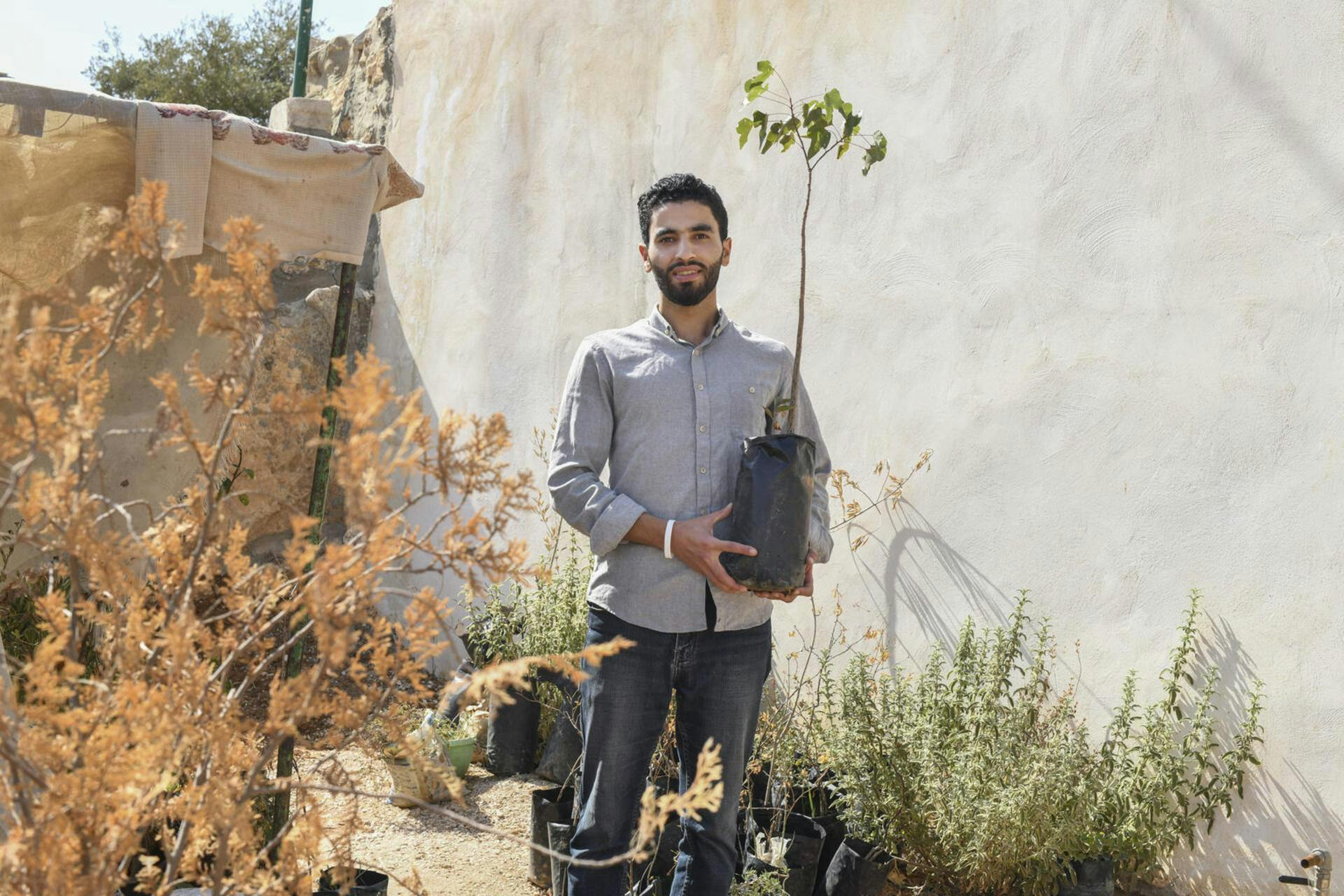
UNICEF/UN0752645/Bseiso
Sa’ad is a civil engineering student from Jordan. He is also a Youth Climate Leader with the UNICEF-supported Sawn (‘to protect/preserve’ in Arabic) Programme.
“Sawn is an opportunity for me to learn about climate change and to meet other young people from different places who are interested in these issues too,” says Sa’ad.
“Countries like Jordan are not major contributors to climate change, but we’re massively impacted by it. We suffer from a severe lack of water resources which affects our daily life at home, agriculture, industry, and the national economy.
“Water shortages mean that families have to resort to private and expensive water sources and it’s increasing the price of vegetables and fruits.”
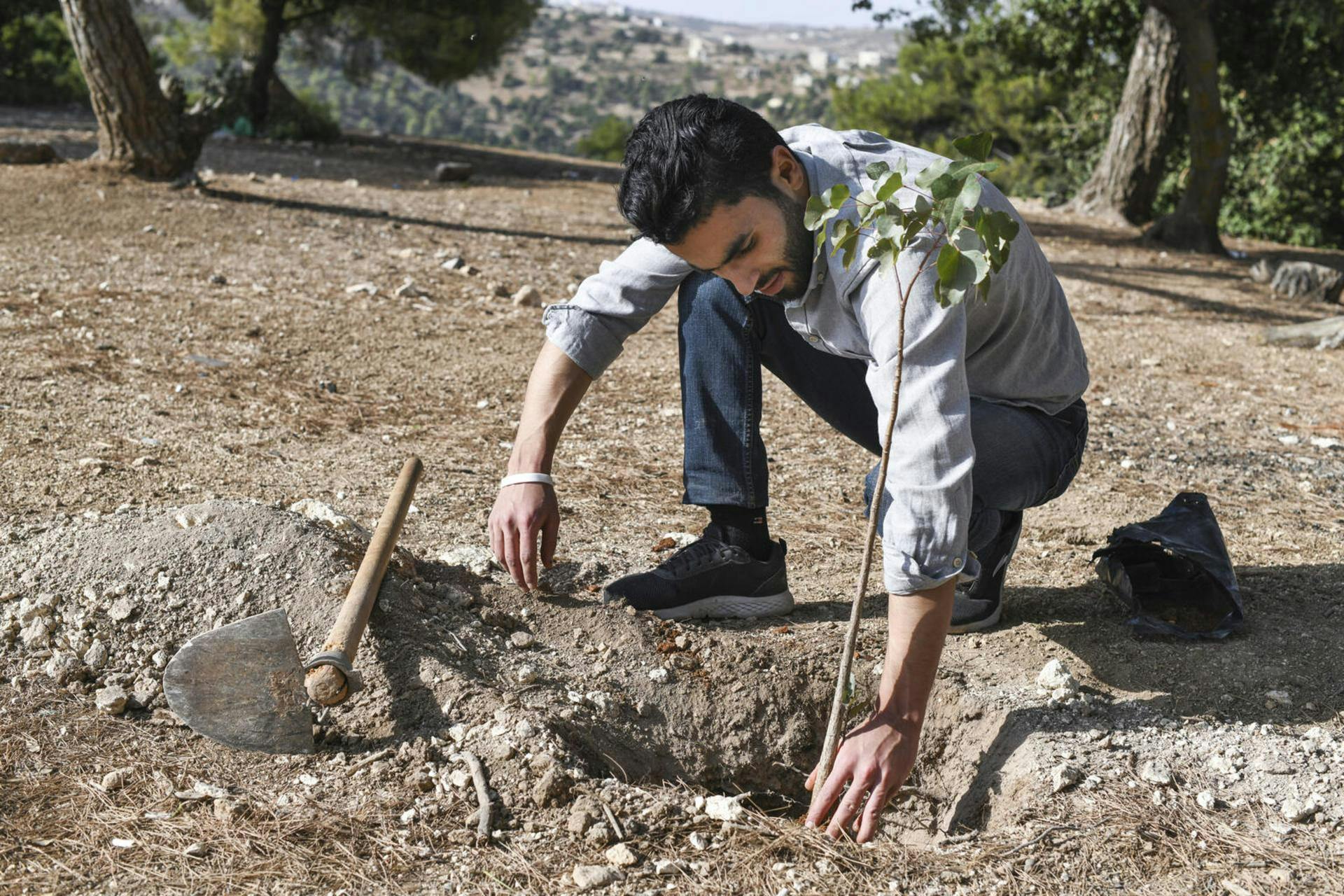
UNICEF/UN0752641/Bseiso
Sa’ad raises awareness of the importance of forests that absorb carbon and help cool the environment. He helps to plant trees to protect local biodiversity and to stop desertification. “This will give future generations a better environment and a better life,” Sa’ad says.
Last year Sa’ad attended COP27 in Egypt through UNICEF where he met like-minded young people from all over the world and got to see first-hand how negotiations between countries are carried out.
“I am inspired by the work I am doing with UNICEF to meet other young activists and come together to make a difference. It’s so important that young people have a role in these global summits because it’s our future that’s at stake.”